Putin's Pendulum
Adelina Marini, March 30, 2015
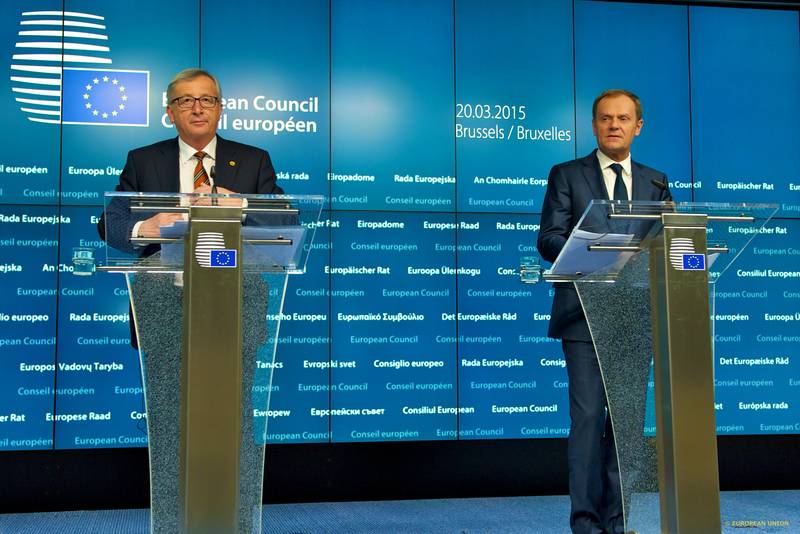 At the spring European Council, just like with other EU summits, the leaders lacked courage to send a strong and clear signal to Russia that its behaviour is not tolerated. For that summit European Council President Donald Tusk had the ambition to propose binding the duration of the already introduced sanctions against Russia, because of the annexation of the Crimea and the conflict in eastern Ukraine, with the implementation of the two peace agreements from Minsk brokered by French President Francois Hollande and German Chancellor Angela Merkel. It was expected the former Polish premier to propose first to Ms Merkel and Mr Hollande the idea for such binding and if they approved it it could have inspired the other leaders to support it as well. Alas, the leaders only had the will to agree on it in principle. Specific decisions, however, will be made "in the coming months", is written in the summit conclusions.
At the spring European Council, just like with other EU summits, the leaders lacked courage to send a strong and clear signal to Russia that its behaviour is not tolerated. For that summit European Council President Donald Tusk had the ambition to propose binding the duration of the already introduced sanctions against Russia, because of the annexation of the Crimea and the conflict in eastern Ukraine, with the implementation of the two peace agreements from Minsk brokered by French President Francois Hollande and German Chancellor Angela Merkel. It was expected the former Polish premier to propose first to Ms Merkel and Mr Hollande the idea for such binding and if they approved it it could have inspired the other leaders to support it as well. Alas, the leaders only had the will to agree on it in principle. Specific decisions, however, will be made "in the coming months", is written in the summit conclusions.
However, when is of the essence because the sanctions expire on 31 July. Not only the leaders had no will to adopt the proposal now, but they also put an expiry date on a possible future decision. The sanctions will be in force as long as the Minsk agreements are in force, which is 31 December 2015. This means that the extension of the sanctions will be by then at the maximum. Before the beginning of the summit, in Brussels was also Arseniy Yatsenyuk, the Ukraine prime minister. He strongly urged the member states not to give up the sanctions. "I want to be very clear – there can only be discussed extending and raising the sanctions against Russia". He added that the Russian formula for stability is EU's instability. "And if Putin destroys the unity between the EU member countries and between the EU leaders, it will be the largest success for President Putin. But it will be a disaster for the European Union", the Ukrainian prime minister warned.
At the brief press conference after the first day of the summit, when the issue was discussed intensively, Donald Tusk seemed disappointed. He said almost nothing on the issue about sanctions and because of the haste for the mini summit on Greece, he and Commission President Jean-Claude Juncker answered only two questions of journalists. Instead, the two were subjected to heavy criticism in the European Parliament where they reported the outcome of the European Council. The leader of the group of European Conservatives and Reformists, Syed Kamall (UK), said that the summit was supposed to demonstrate the EU's strength and determination but instead it demonstrated the weakness of will. "And have we forgotten Crimea? What message is the council giving to Russia? It seems that the EU is saying to Russia: Invade first, negotiate second", said the MEP and urged Donald Tusk to demonstrate that the Council can stand up to Russia.
Strongly critical was also the leader of the Liberal group, Guy Verhofstadt (Belgium). "What is the decision on Russia?", he asked. "Have the sanctions been deepened if Russia and if Mr Putin is going further?", he added. The former prime minister of Belgium also asked whether a decision was taken on the so called "positive package" which includes new visa liberalisation for young Russians, students, researchers. The co-president of the group of Greens and the European Free Alliance, Rebecca Harms (Germany), also called the decision of the EU to postpone the decision on Russia for the next summit a weak one.
The fight against propaganda
Despite the weak outcome of the summit on sanctions, still, some progress was scored on another important issue which came into the spotlight a few months ago. The leaders have given a mandate to the EU high representative for foreign and security policy to prepare a plan to counteract Russian propaganda. The idea has been circulating in the European public domain for several months and a specific proposal has been articulated by four member states - Denmark, Estonia, Lithuania and Britain - for the establishment of a European TV station in Russian language to handle disinformation. In the European Council conclusions it is written that by June an action plan has to be presented for a strategic communication. It is not clear, however, what exactly is meant by this. And although this issue was expected to be one of the leading ones, it was not.
However, it was touched in detail in the annual report [in Bulgarian] on the situation of defence of Bulgaria, approved by the Bulgarian government on 25 March. It points out that the crisis in Ukraine has a destabilising effect in terms of regional security. The dynamics of the development of the "hybrid war" creates new challenges for the system of national security. According to the Bulgarian press, in previous strategic documents the term "information war" was used but it was dropped out. In the report of the Ministry of Defence the following definition of hybrid war is provided: "It [the hybrid war] combines conventional and non-conventional methods, military and non-military means with a special focus on conducting an information war and cyber-attacks".
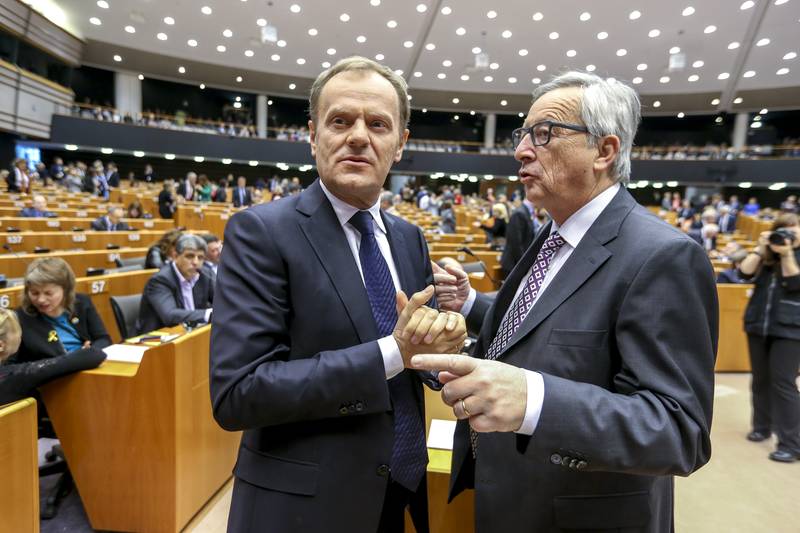 The illegal annexation of the Crimea and the systemic destabilising Russian activities in eastern Ukraine, as well as the information and cyber-attacks, are an illustration of this war, the document reads. It also expresses concern with "the attempts to manipulate the public opinion through disinformation, propaganda campaigns, media manipulation, use of the social networks for disinformation, attempts of populist leaders to manipulate electoral groups and to cause confusion among the population, etc.". This is the first formal recognition of the influence of the Russian propaganda in Bulgaria. The report points out that a serious problem for national security is the lack of a national body on cyber security and national regulation in this area which impedes the implementation of the NATO and EU policies.
The illegal annexation of the Crimea and the systemic destabilising Russian activities in eastern Ukraine, as well as the information and cyber-attacks, are an illustration of this war, the document reads. It also expresses concern with "the attempts to manipulate the public opinion through disinformation, propaganda campaigns, media manipulation, use of the social networks for disinformation, attempts of populist leaders to manipulate electoral groups and to cause confusion among the population, etc.". This is the first formal recognition of the influence of the Russian propaganda in Bulgaria. The report points out that a serious problem for national security is the lack of a national body on cyber security and national regulation in this area which impedes the implementation of the NATO and EU policies.
The issue of Russian propaganda and disinformation was just vaguely touched during the debate in the European Parliament on 25 March. Only Syed Kamall raised the issue, saying: "On Russia, we welcome the decision to give Minsk a chance. But we have been far too slow in responding to Russian propaganda". For now, it is not clear what form would the strategy to fight Russian disinformation take. During discussions in the Foreign Affairs Council, Federica Mogherini hinted that it might not be a television station. But what else could it be to fit into the European standards for journalistic impartiality and to avoid it being perceived as a counter disinformation campaign as there already are such claims in the Bulgarian media environment and there were direct accusations by the Russian foreign minister in January?
In their letter, the four member states urge for a special monitoring of the violations of broadcasting and public information the rules on the basis of criteria for impartiality, transparency of interests (ownership), hate speech, propagation of violence and war, etc. Against the backdrop of the sanctions and truces, the media war is expected to be much tougher and continuous because Russia has conducted it for a long time now and the EU is just now starting to realise the scale of the disaster. In order to be successful at the media front, the EU must be determined and show strong will. euinside, too, proposed last year how the EU can join on an equal footing the big powers in the media war, which involves the creation of regional TV stations in local languages after the model of the Qatari Al Jazeera Balkans and the American N1.
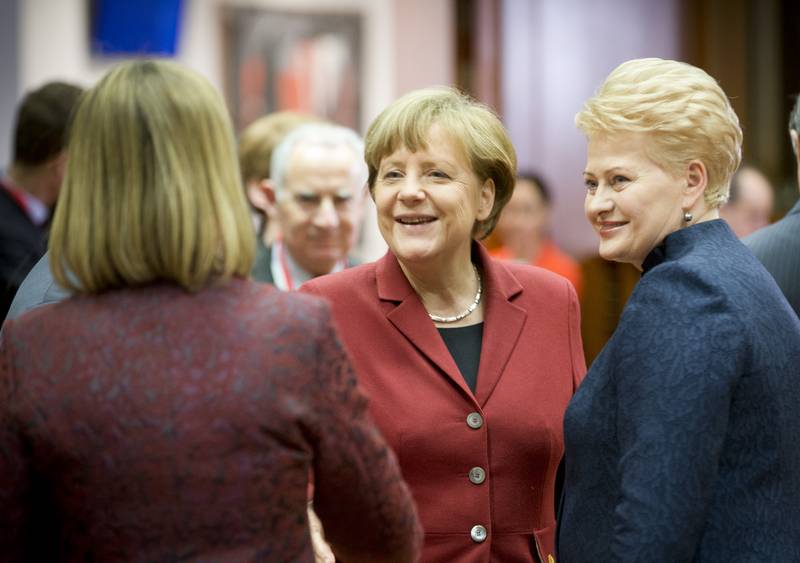 EU does not have a TV station of its own similar to BBC World News, the Russian RT, Al Jazeera or the Chinese international TV station, although it funds part of the budget of euronews. This is just another symptom of the strong fragmentation of the European external policy. Now, more than ever, it is crucial to ensure unbiased information about the developments both within the EU and outside because, at least, of the establishment of an energy union. The strategy the Commission presented can be perceived in two ways. The energy union can either be very strong or very weak. It could be the former if there is unity in the EU to implement the existing legislation and the common energy security standards. Against the backdrop of the strong disinformation, however, it is much more likely that the energy union would be weak, as the results show from its first discussion in the European Council. EU realises very well the importance of media for the carrying out of civilisational reforms in the enlargement process. However, it should recognise that in the EU itself there is much to do on this issue as well.
EU does not have a TV station of its own similar to BBC World News, the Russian RT, Al Jazeera or the Chinese international TV station, although it funds part of the budget of euronews. This is just another symptom of the strong fragmentation of the European external policy. Now, more than ever, it is crucial to ensure unbiased information about the developments both within the EU and outside because, at least, of the establishment of an energy union. The strategy the Commission presented can be perceived in two ways. The energy union can either be very strong or very weak. It could be the former if there is unity in the EU to implement the existing legislation and the common energy security standards. Against the backdrop of the strong disinformation, however, it is much more likely that the energy union would be weak, as the results show from its first discussion in the European Council. EU realises very well the importance of media for the carrying out of civilisational reforms in the enlargement process. However, it should recognise that in the EU itself there is much to do on this issue as well.
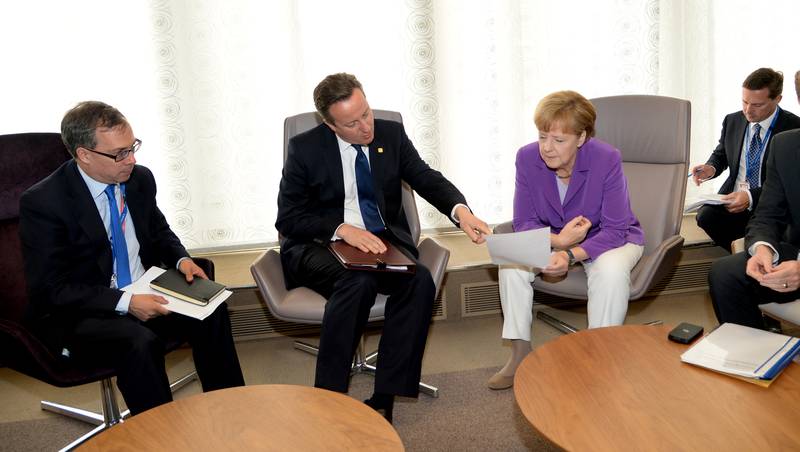 David Cameron, Angela Merkel | © Council of the EU
David Cameron, Angela Merkel | © Council of the EU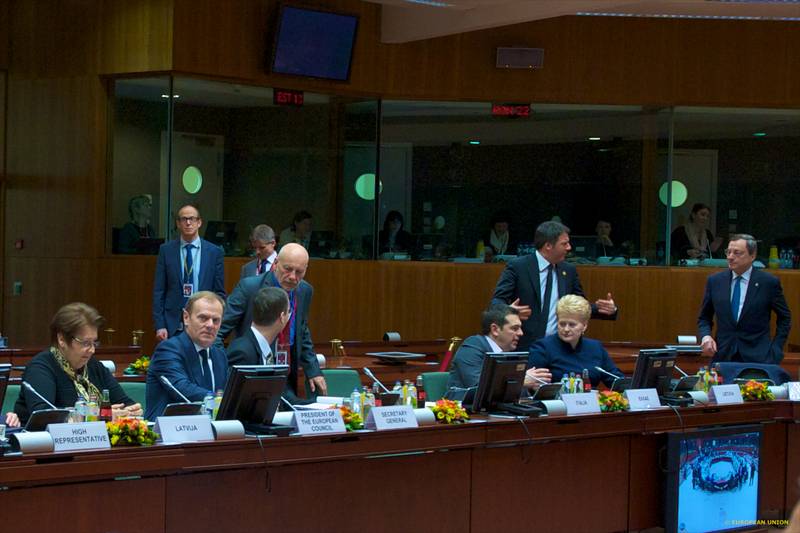 | © Council of the EU
| © Council of the EU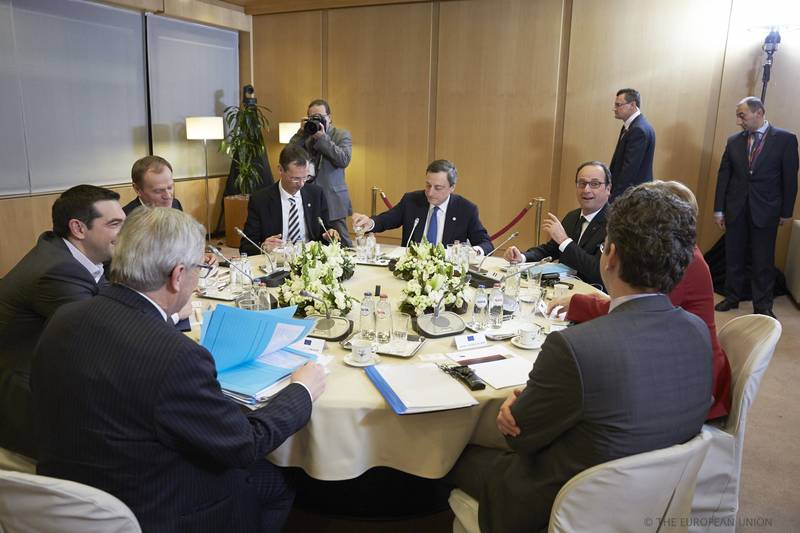 | © Council of the EU
| © Council of the EU